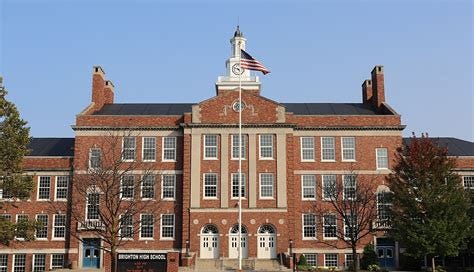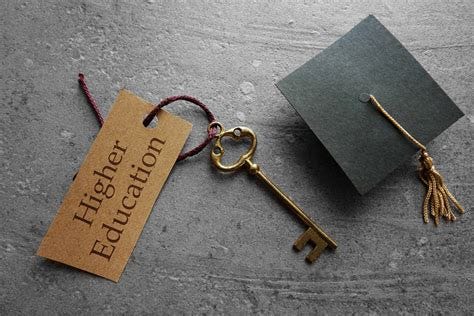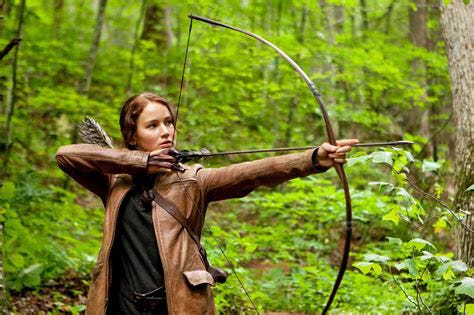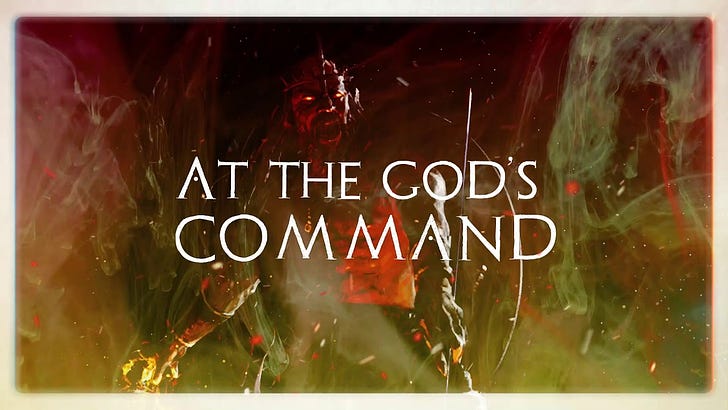Updated: First published in September of 2023.
My idea in this essay is to point out some things that might be taught that would make people more self reliant, would make life a little better and perhaps more free. Some of the ideas might elicit controversy, but if you catch flak it means you are over the target. Some ideas here are meant to illuminate what the elites of the world are taught to do, so training the general populace in those techniques would somewhat shield the people from their machinations.
The basics must continue to be taught, of course. Students should learn enough reading, writing and arithmetic to function, as well as history, geography, etc. What they learn after that is debatable. See my earlier essay Some Thoughts on Higher Education:
Some thoughts on higher education
First we must ask the question, just how high is higher education? Consider the state of affairs in 1895 U.S.A. Below is the test, and you can see it in the link, of the final eighth grade exam in Salinas, Kansas in 1895:Thanks for reading David’s Substack! Subscribe for free to receive new posts and support my work.
The idea is to introduce things that increase the abilities of the students in ways that make them less likely to be manipulated and controlled by the powerful. While it would be extremely difficult to get all of these changes into a public school curriculum, it might be possible to slip in one or two, and to do so would require your local school board. Our present school system was set up to provide workers, not necessarily a free people.
Shop: This was once a given as all boys took year of shop in the eighth grade, but many schools no longer do.
Methods of control: Students should be taught what types of techniques are used by the politically powerful to increase their power and push in the direction of total authoritarian control. What methods have been used through history, giving historical examples, do the powerful use to control the populace? Classroom exercises would be in order, wherein students think up what kind of subterfuge they could use if they were kings and queens, how they would recognize it and how to counter it. By devising the schemes themselves people would be cognizant of such things for the rest of their lives. People often don't recognize them for what they are when they see them. The series The Hunger Games might be illustrative. (My opinion is that military veterans are more likely to recognize them than others, but individuals vary.)
Panem And Agenda 2030
The Hunger Games books by Suzanne Collins are about a country that occupies North America and roughly corresponds geographically to the United States, set in the far future. There has been a terrible war resulting in a capitol city ruling over the rest of the country with an iron hand. Except it's not really the rest of the country, most of which is vac…
The use of false flag operations through history: This might be thought to be part of methods of control, but I think it deserves it's own heading. Historical examples are again useful highlighting cases when operations have occurred which were deftly blamed on adversaries. Green flags, when an enemy is known to be preparing a nefarious activity and it is allowed to proceed because it will benefit someone powerful, are also discussed. Students should be asked to explain what kind of false flags they would plan if they were a king and were trying to subjugate their populace.
Criminal thinking: Yes, criminal. Police officers over time learn to think like criminals; while walking or driving they will notice good places to perform a mugging or rape, think how they would rob a particular store, and so on. It's part of the job for them and makes them better officers, but there's no reason the average citizen couldn't learn it.
Genocide and democide in history: An important thing to know about. Since it's important to know that it can happen here, know what factors bring it into being, what can prevent it and what we as individuals and families can do about it. Highlights the need for marksmanship training. For resources, see the University of Hawaii Democide Project: https://hawaii.edu/powerkills/welcome.html
The Emperor has no clothes: Of course he doesn't, and it's amazing to see how often this phenomenon happens. Classroom exercises can be done and essays written on how they would exploit this effect if they were kings and queens.
Understanding propaganda: The five rules of propaganda should be taught, posted in the classroom, and explained, discussed, then perhaps classroom exercises of students making up propaganda while others debunk it. With all of the propaganda perpetually in use, and seemingly getting worse lately, I think this is important. Students should be required to design their own propaganda campaigns.
The rule of simplification - reducing all data to a simple confrontation between 'Good and Bad', 'Friend and Foe'.
The rule of disfiguration - discrediting the opposition by crude smears and parodies.
The rule of transfusion - manipulating the consensus values of the target audience for one's own ends.
The rule of unanimity - presenting one's viewpoint as if it were unanimous opinion of all right-thinking people: draining the doubting individual into agreement by the appeal of star-performers, by social pressure , and by 'psychological contagion'.
The rule of orchestration - endlessly repeating the same messages in different variations and combinations.
Information Warfare: Information war is ongoing and is being used to increase control over people. A possible textbook would be Introduction to 5G Warfare by Michael Flynn. Students might design their own information warfare program, after which they will be less likely to be swayed. Unlike propaganda, real people die in information warfare.
General boy scout things: Not everyone has the interest or opportunity to be in the Boy Scouts, but everyone should get the short version, and survival should be emphasized. A lady co-worker grew up in Alaska, and she said that all students, at least in her school, were required to know how to build a snow cave type of shelter. Everyone should learn basic survival in the wilderness, land navigation, water purification, etc. Knots. Knowing a number of knots makes a lot of tasks easier. There could be a knot of the month for all third and fourth graders, with the monthly knot being tied at least once a day by each child. Of course the teachers would have to learn them as well.
Critical thinking: Not enough of that these days. Perhaps periodic debates in class, written analyses of ideas, incorporation of numbers and arithmetic into arguments. Critical reading should be included in this. For example, if an activist should claim that every second in America a homeless person dies, it should be pointed out that that's 3,600 per hour, 86,400 per day and roughly 31 ½ million per year, and that the entire population of the US would be dead from homelessness in about 11 years. (An actual example.) Things like this show up in the media frequently, not this egregious perhaps, but similarly lacking in a look at the numbers. You would think you would have to pass eighth grade arithmetic to go to journalism school.
Self Defense: Fold this into physical education, and we do do need to have physical education.
Warfare: A short, perhaps one semester, on the principles of war. Warfare has been a constant of human history. Strategy, tactics, logistics, causes, etc. Our students as kings and queens should plan an invasion and plan a defense against an invasion. My essay Some Disjointed Thoughts on War is at the link:
Some Disjointed Thoughts on War
Some Disjointed Thoughts on War During the war in Viet Nam an idea was often floated around in what could pass for the predecessor of the blogosphere. It went like this: “What if they gave a war and nobody came?” The implicit assumption is that of course wars only occur because people are forced into it by the powerful, so if everyone just wouldn't parti…
Marksmanship: Since a nation of riflemen cannot be tyrannized. It was once taken as a given that all young men knew how to shoot, but it wasn't even true back then. Start with sling shots in first grade and work up. In high school, infantry weapons. Include cleaning and maintenance. To those concerned about guns in schools, remember that high school boys in America used to take theirs to school and have them in their lockers so as to go hunting after school. (The school shootings only began after the passage of the Gun Free school Zones Act, but it probably has more to do with mind altering drugs, both illegal and prescription.)
Willpower: This is more important than many people realize. It's a truism about the brilliant people who end up failures simply because they did not have the guts to not give up. “Freedom is what everyone wants - to be able to act and live with freedom. But the only way to get to a place of freedom is through discipline.” Jocko Willink
"Nothing in this world can take the place of persistence. Talent will not: nothing is more common than unsuccessful men with talent. Genius will not; unrewarded genius is almost a proverb. Education will not: the world is full of educated derelicts. Persistence and determination alone are omnipotent." ~ Calvin Coolidge
Never Give Up
Never Give Up This comes from the source of all wisdom, the internet. I don't know who wrote it, and whoever was putting it on the internet did not either. Some reading this may find it inspirational, some may find it repugnant and some may just be bored. This depends on ones internal emotional landscape as well as his world view. If the trends we are se…
Basic Engineering: Not in the sense of a college engineering major. How things are constructed, some basic formulas once some algebra is learned. How basic machines and tools work.
Basic Business: Everyone should know the basics of setting up and running a business.
Government: Know the basics of US government. Should be a given, but sometimes is given short shrift. Study other forms of government and have students design their own types. Use this with the critical thinking portion to have the ideas critiqued.
Since the understanding of these ideas could be dangerous, each school day should be started with the principal reciting a short non-sectarian prayer and a short Bible reading, perhaps from Proverbs. The lack of this makes people weaker. (The First Amendment only says Congress cannot mandate a State religion. It does not prohibit prayer in schools.)
“Our Constitution was made only for a moral and religious people. It is wholly inadequate to the government of any other.” John Adams
Stay brave, stay free







![[COPY] Propaganda Thoughts](https://substackcdn.com/image/fetch/$s_!MY8w!,w_1300,h_650,c_fill,f_auto,q_auto:good,fl_progressive:steep,g_auto/https%3A%2F%2Fsubstack-post-media.s3.amazonaws.com%2Fpublic%2Fimages%2Fca8573e1-c137-45ea-b2a8-b6bffb8c39cf_474x732.jpeg)

![[COPY] Some Second Amendment Thoughts](https://substackcdn.com/image/fetch/$s_!D3RA!,w_1300,h_650,c_fill,f_auto,q_auto:good,fl_progressive:steep,g_auto/https%3A%2F%2Fsubstack-post-media.s3.amazonaws.com%2Fpublic%2Fimages%2F6eb6601b-fc8c-44c8-bb1b-8fe02b303210_474x355.jpeg)

"A lady co-worker grew up in Alaska, and she said that all students, at least in her school, were required to know how to build a snow cave type of shelter."
When we moved to Arizona roughly 25 years ago, our youngest attended a (public) elementary school in Buckeye in which all the students had to show proficiency at desert survival. At year's end, they had to go on a trip to a barren "park," assemble and run their own working solar still, have their "automobile survival kit" inspected, successfully identify dangerous predators, and more.
A Good Basic Education pre Comrade John Dewy from the USSR converting USA to the current USSA